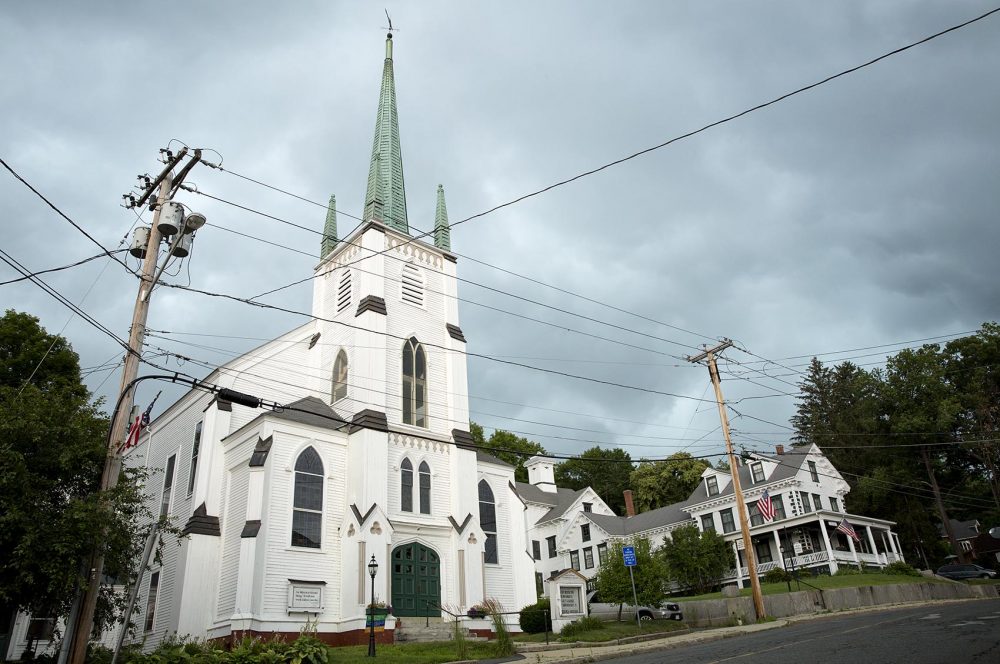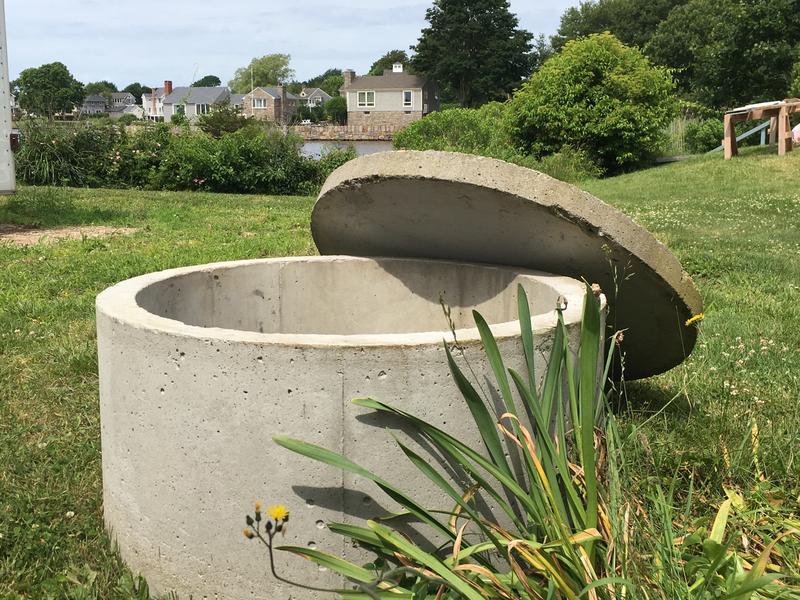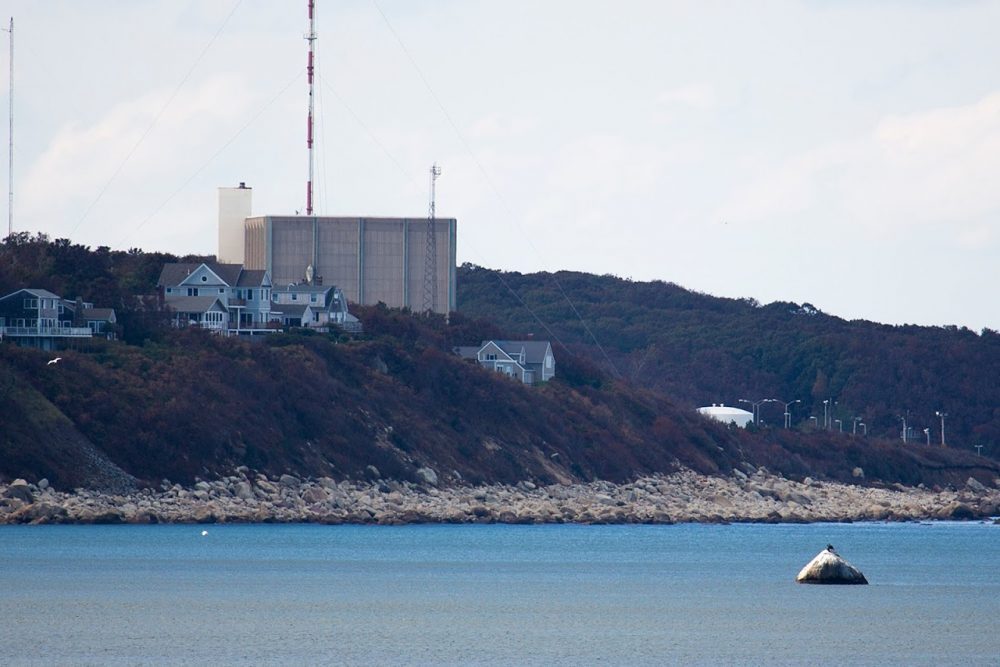Episode 106

This week on NEXT: we discuss the move to alternate forms of energy around the region, including the latest on the effort to bring hydropower from Canada to Massachusetts, a nuclear power plant that’s up for sale, and the effect of individual solar panels on the region’s grid. We also learn about PFAS chemicals in the region’s water, and how climate change is effecting coastal drinking wells. Plus, we visit two New England towns shaped by Stephen King: his hometown of Bangor, Maine, better known as the fictionalized Derry, and Orange, Massachusetts where the new series based on King’s Castle Rock was filmed.
It’s NEXT.
The Challenge of Removing PFAS Chemicals from Drinking Water
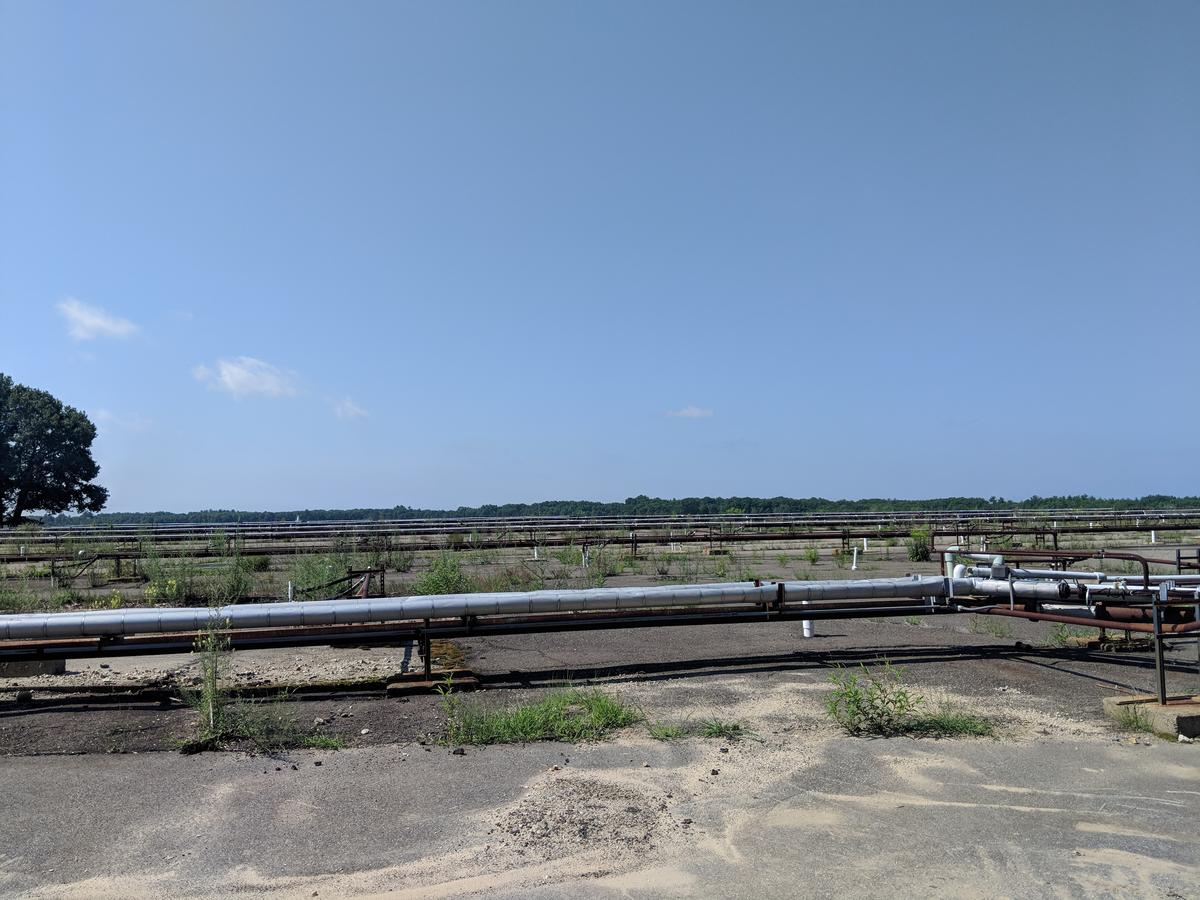
A grid of pipes connects 10 wells that are filtering PFAS out of one aquifer below Pease International Tradeport. Photo by Annie Ropeik for NHPR
We’ve been reporting on toxic PFAS chemicals that have been found in drinking water throughout the region. These widely used chemicals are ubiquitous, and the state of New Hampshire has become a hotspot.
The environmental reporter from NHPR, Annie Ropeik, has been covering this story for the New England News Collaborative. She joins us to discuss the chemicals and a new water treatment facility at Pease International Tradeport that is filtering the PFAS chemicals out of the water.
Storm Surge and Coastal Drinking Wells
Cleaning dangerous and persistent man-made chemicals out of groundwater can be difficult and expensive, but what happens when your well gets contaminated by persistent, and completely naturally occurring, substances like salt? It’s happening more frequently, especially near coastal areas, and the culprit is climate change.
Hurricanes and other severe storms, which are becoming more frequent, can push seawater toward the shore. And that water, called storm surge, can flood streets and basements, and get into drinking water wells. Rhode Island Public Radio’s Avory Brookins reports as part of the series, “Ready or Not.”
CMP’s Plan to Bring Energy from Canada to Massachusetts

Kevin Ross, a rafting guide for Dead River Expeditions, points to a section of the Kennebec River Gorge where CMP proposes a major transmission line crossing. It would arc over an otherwise undeveloped seven-mile stretch of the river. Ross opposes the plan, but CMP and other stakeholders have struck a mitigation deal that would include donations of recreational land and funding for economic development in the West Forks area. Photo by Fred Bever for Maine Public
Massachusetts is the biggest consumer of energy in our region, and the state’s working to bring hydroelectric power from Quebec down to meet its clean energy goals. But it has been a challenge. Their first choice plan, the Northern Pass, was going to bring the energy through New Hampshire. The plan was stopped by New Hampshire state regulators, and now Massachusetts is going with Plan B: a project by Maine’s biggest utility, Central Maine Power, or CMP.
Maine Public’s Fred Bever joins us to discuss the latest on CMP’s plan to bring energy to Massachusetts, and how people around Maine are reacting. For more information, listen to Fred Bever’s coverage on the Kennebec River Gorge and what Maine will get out of the proposal.
You can find a collection of our coverage on the switch to renewable energy on the Big Switch.
BTM Solar’s Impact on the Region’s Grid
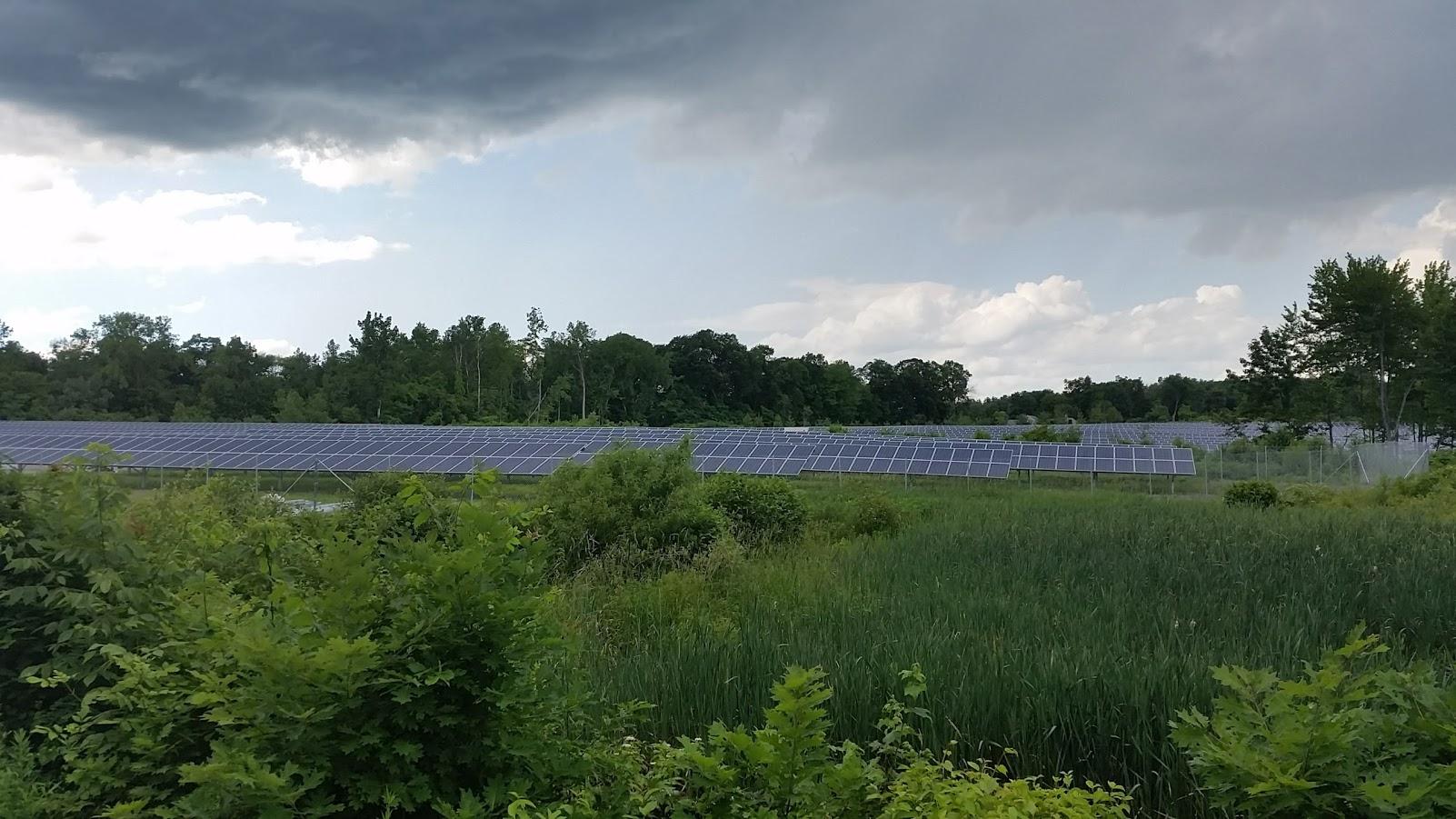
Kevin Sullivan put solar panels on a portion of his 60 acres of property in Suffield, Connecticut. Photo by Patrick Skahill for WNPR
Our growing need for energy, and our desire to make more of it renewable, has set up other tensions beyond where to put big powerlines like CMP’s. There’s long been a dispute over how to account for “behind the meter solar,” those individual panels that you’d put on your home or business. Energy analysts are seeing that rooftop solar can actually have a big impact on the region’s grid, especially during heatwaves, such as the ones we’ve experienced through most of this summer.
Sam Evans-Brown is the host of the “Outside/In” podcast at New Hampshire Public Radio. He joined us to nerd-out about solar power.
If you’re interested in the region’s energy, we highly recommend that you listen to Sam’s award-winning podcast series, “Powerline,” about that same hydroelectric energy coming from Quebec that we discussed earlier. You can find the series here.
Pilgrim Nuclear Power Plant Is For Sale
Elsewhere in New England, the Pilgrim Nuclear Power plant is selling for a bargain price, but there’s a catch.
WBUR’s Bruce Gellerman reports on what’s going on.
Stephen King Series Brings Hope to a Small Massachusetts Town

The vintage-looking Schlitz beer mural crew painted for “Castle Rock” still adorns a wall in Orange. Photo by Robin Lubbock for WBUR
Stephen King’s creepy storytelling is fueling a new streaming series on Hulu: Castle Rock. The story is set in Maine, but it was largely shot in the central Massachusetts town of Orange, and in Devens at the region’s largest film production studio.
WBUR’s Andrea Shea explains why the arrival of this high-profile series is bringing excitement to town and to the state’s film industry.
Tours of Stephen King’s Bangor

A family poses in front of Stephen and Tabitha King’s home in Bangor Maine during a King-themed tour. (Credit: Jennifer Mitchell/Maine Public Radio)
Thanks to Stephen King’s horror stories, Bangor, Maine is one of the most famous towns in the world, but many of his fans might not realize it. That’s because it’s known by another name in his books: Derry. The fictional town is a thinly disguised version of Bangor, where the author has lived for decades. Derry appears in many of King’s stories and provides the major setting for the novel It.
Maine Public Radio’s Jennifer Mitchell took a tour of the real Derry a few years ago with a tour company exclusively devoted to showcasing Stephen King’s Bangor.
You can find more information about SK Tours here.
Photo at the top of the page: The First Universalist Church in Orange is one of the locations that appear in Castle Rock. Photo by Robin Lubbock for WBUR
About NEXT
NEXT is produced at Connecticut Public Radio
Host: John Dankosky
Producer: Lily Tyson
Digital Producer: Carlos Mejia
Executive Producer: Catie Talarski
Contributors to this episode: Annie Ropeik, Avory Brookins, Fred Bever, Bruce Gellerman, Sam Evans-Brown, Andrea Shea, Jennifer Mitchell
Music: Todd Merrell, “New England” by Goodnight Blue Moon, “Drum Science” by Anitek, “Electric Feel” by MGMT
Stream every episode of NEXT.
We appreciate your feedback! Send critiques, suggestions, questions, and ideas to next@wnpr.org. Follow us on Facebook and Twitter.
If you like what you hear, make sure to rate and review us on iTunes so other listeners can hear conversations from around New England.

